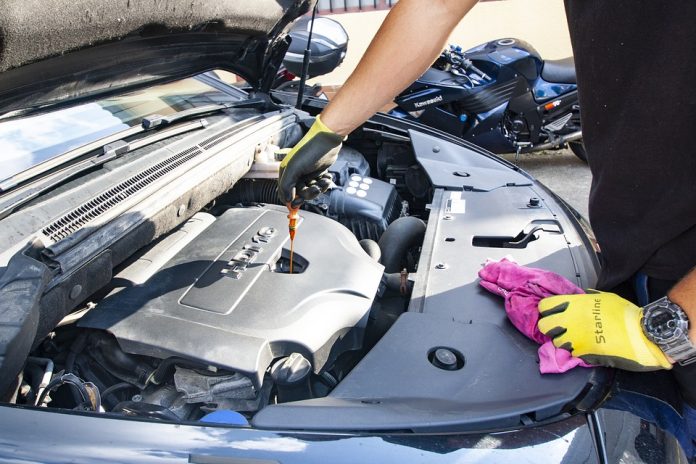
Any time there’s an awful noise coming from your car, it’s natural to panic. The best course of action is to call your local auto mechanic for a complete under-the-hood inspection. In the meantime, here are some loose methods for tracking down the cause of a noise based on how it sounds. Here’s what the experts look for when you roll in.
Squeaking or Squealing When Accelerating
Have you been hearing your car making a high-pitched noise when accelerating? This issue can be rather embarrassing, causing other drivers to stare in dismay. While your car may run or operate, as usual, this noise proves there’s an underlying problem brewing. A loud squeal often indicates a loose or fraying belt under the hood.
If it’s your alternator belt, you may notice your vehicle has trouble starting sometimes. Or, the lights and radio may switch on and off randomly. In newer model cars, the problem could be the serpentine belt instead.
Most alternator and serpentine belts last somewhere between 50,000 and 100,000 miles before breaking down. Still, don’t assume that isn’t your problem if you’re driving a relatively new or low-mileage vehicle. Defective belts can and do happen and should be addressed by a mechanic as soon as possible.
Knocking Inside the Engine
Going through the drive-through only to complain that the car ahead of you has a wretched knocking noise coming from the engine? Wait, that’s coming from your car!
Rod knocking is a serious issue that could indicate the engine is running low on motor oil. The result of letting this go means having to pull the rods and replace the bearings. Ignore the problem long enough, and you might even need a complete engine replacement.
You should change your oil at least every 3,000 miles or according to your car’s vehicle manual as a rule of thumb. If you’re hands-on and have a bit of basic knowledge about vehicle maintenance, there’s no reason you can’t do this yourself. Otherwise, see a mechanic or visit a shop.
Clunking Going Over a Bump
Does your car make a loud clunk every time it goes over a bump or ridge in the road? If so, have a mechanic look at your car’s suspension system. Problems with a vehicle’s suspension can range from simple issues, such as ball joints, or more complex problems, such as damaged struts.
Ultimately, a bad suspension will affect the car’s steering and performance. But there are more serious risks, too, such as further damage to the vehicle’s suspension or a total loss of control while driving the vehicle.
Other potential causes of clunking include a loose item rolling around in the trunk (seriously — this is super common), bad wheel bearings, and broken shocks. All are too complex for the average user to fix, but your local mechanic can help.
Metal Grinding Noise When Braking
Without brakes, a vehicle is just a 1-ton plus hunk of metal barreling down the road. If you hear a suspicious grinding or flapping noise when you press on the brake pedal or when your car is in motion, you might be experiencing a problem with your breaks.
Potential issues run the gamut from easy-to-fix issues with brake dust to more serious (read: expensive) problems like degraded rotors or brake drums.
Brake pads, which are generally cheaper to fix, are also designed to be replaced at certain intervals. According to Bridgestone Tire, you should expect to switch them out every 30,000-35,000 miles — more often if you’re rough on your vehicle.
It’s critical to maintain your brakes at least every six months routinely. If you’re having problems stopping right now, do not drive the vehicle, even to the mechanic’s shop. It may not be safe, and you may find yourself in an accident. Call for a tow instead.






